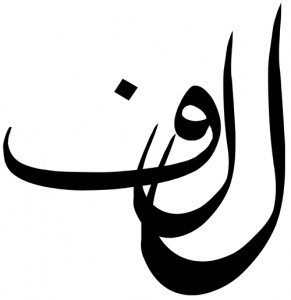
By Peter Oborne
New Statesman, Feb. 26, 2015
More than 75,000 visitors flocked to the Lahore Literary Festival at the end of February, a dazzling celebration of Pakistani poetry, music, dance, history and politics. We wandered round Lahore’s Old City, dispersed round the capital at private dinner parties in the evenings and (in my case) attended nets at the Bagh-e-Jinnah cricket ground, where Pakistan played its early Test matches.
There was just one blot on a magnificently organized occasion. At the last moment, the British Council got cold feet. Having sponsored Aminatta Forna, the Sierra Leone novelist (who knows better than most about war zones), the Council in effect placed her under house arrest at a hotel near the festival. She was escorted to the venue to say her piece and left early, I am told, in boredom and disgust. British Council officials pulled out, too, following the example of Robert Burns’s “wee, sleekit, cow’rin, tim’rous beastie.” Several panels had to be hastily rearranged.
Yet Lyse Doucet and others from the BBC were there, along with novelists and poets from all around the world. I suspect this is not the British Council’s fault and it was under some punitive security edict. Nevertheless, Sir Vernon Ellis, the British Council chairman, needs to reexamine his organization’s security procedures. There is no point in the British Council if it is unable to attend events such as the Lahore Literary Festival, especially when the going gets tough.
My favorite session was a celebration of the life of the Punjabi journalist Khushwant Singh, who died last year at the age of 99. Khushwant enjoyed a career as a lawyer in Lahore before fleeing Pakistan at Partition in 1947. Thereafter he became a writer. Study of his column in Hindustan Times, which appeared under the banner “With Malice towards One and All,” should be made compulsory for Britain’s frightened generation of client journalists. In the aftermath of the 1971 Indo-Pakistani war, Khushwant pleaded with Mrs. Gandhi for the release of Pakistan prisoners. “Are you trying to teach me morality?” demanded the Indian prime minister. “You must learn it from whomsoever you need to learn it,” replied the sage.
Rahul, his son, read out the epitaph his father composed for himself shortly before his death: “Here lies one who spared neither man nor God; waste not your tears on him, he was a sod; writing nasty things he regarded as great fun; thank the Lord he is dead, this son of a gun.” How I wish I had met Khushwant Singh and what volumes it speaks for the strength of Indian democracy and public life that no one managed to suppress this imperishable hero of our trade.
I have been called “brave” and even “heroic” in the wake of my resignation from the Daily Telegraph. This is kind but it is also completely false. For bravery, let’s consider Pakistan, where more than 50 journalists have been killed in the past 20 years. Forty have been killed in Colombia, 56 in Russia, and so the list goes on. In many countries of the world, reporters face abduction, torture, assassination and imprisonment. Western news organizations only bother with their deaths, however, if they are white, Western (or occasionally pro-Western) journalists. This is wretched. In Britain we are not required to be heroes. We can, however, do our best to behave honorably. A Telegraph old-timer tells me the story of a well-known businessman who visited Bill Deedes, a famous editor of the Telegraph from an era when that paper still had editors. The businessman complained that the City pages were supporting the rival side in a takeover bid and threatened to pull advertising. W. F. Deedes rose to his feet: “Let me show you to the lift myself, and good day to you!”
See the original piece here.

